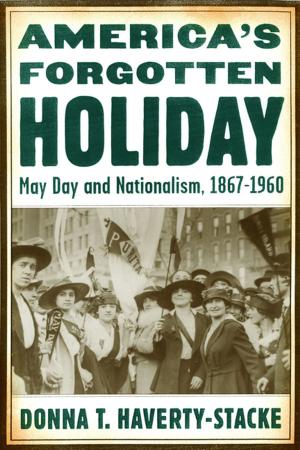Liberty Tree
Ordinary People and the American Revolution
Nonfiction, History, Americas, United States, Revolutionary Period (1775-1800)| Author: | Alfred F. Young | ISBN: | 9780814729359 |
| Publisher: | NYU Press | Publication: | November 6, 2006 |
| Imprint: | NYU Press | Language: | English |
| Author: | Alfred F. Young |
| ISBN: | 9780814729359 |
| Publisher: | NYU Press |
| Publication: | November 6, 2006 |
| Imprint: | NYU Press |
| Language: | English |
With the publication of Liberty Tree, acclaimed historian Alfred F. Young presents a selection of his seminal writing as well as two provocative, never-before-published essays. Together, they take the reader on a journey through the American Revolution, exploring the role played by ordinary women and men (called, at the time, people out of doors) in shaping events during and after the Revolution, their impact on the Founding generation of the new American nation, and finally how this populist side of the Revolution has fared in public memory.
Drawing on a wide range of sources, which include not only written documents but also material items like powder horns, and public rituals like parades and tarring and featherings, Young places ordinary Americans at the center of the Revolution. For example, in one essay he views the Constitution of 1787 as the result of an intentional accommodation by elites with non-elites, while another piece explores the process of ongoing negotiations would-be rulers conducted with the middling sort; women, enslaved African Americans, and Native Americans. Moreover, questions of history and modern memory are engaged by a compelling examination of icons of the Revolution, such as the pamphleteer Thomas Paine and Boston's Freedom Trail.
For over forty years, history lovers, students, and scholars alike have been able to hear the voices and see the actions of ordinary people during the Revolutionary Era, thanks to Young's path-breaking work, which seamlessly blends sophisticated analysis with compelling and accessible prose. From his award-winning work on mechanics, or artisans, in the seaboard cities of the Northeast to the all but forgotten liberty tree, a major popular icon of the Revolution explored in depth for the first time, Young continues to astound readers as he forges new directions in the history of the American Revolution.
With the publication of Liberty Tree, acclaimed historian Alfred F. Young presents a selection of his seminal writing as well as two provocative, never-before-published essays. Together, they take the reader on a journey through the American Revolution, exploring the role played by ordinary women and men (called, at the time, people out of doors) in shaping events during and after the Revolution, their impact on the Founding generation of the new American nation, and finally how this populist side of the Revolution has fared in public memory.
Drawing on a wide range of sources, which include not only written documents but also material items like powder horns, and public rituals like parades and tarring and featherings, Young places ordinary Americans at the center of the Revolution. For example, in one essay he views the Constitution of 1787 as the result of an intentional accommodation by elites with non-elites, while another piece explores the process of ongoing negotiations would-be rulers conducted with the middling sort; women, enslaved African Americans, and Native Americans. Moreover, questions of history and modern memory are engaged by a compelling examination of icons of the Revolution, such as the pamphleteer Thomas Paine and Boston's Freedom Trail.
For over forty years, history lovers, students, and scholars alike have been able to hear the voices and see the actions of ordinary people during the Revolutionary Era, thanks to Young's path-breaking work, which seamlessly blends sophisticated analysis with compelling and accessible prose. From his award-winning work on mechanics, or artisans, in the seaboard cities of the Northeast to the all but forgotten liberty tree, a major popular icon of the Revolution explored in depth for the first time, Young continues to astound readers as he forges new directions in the history of the American Revolution.















